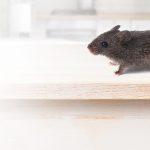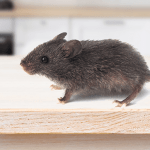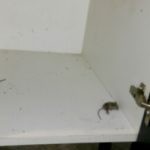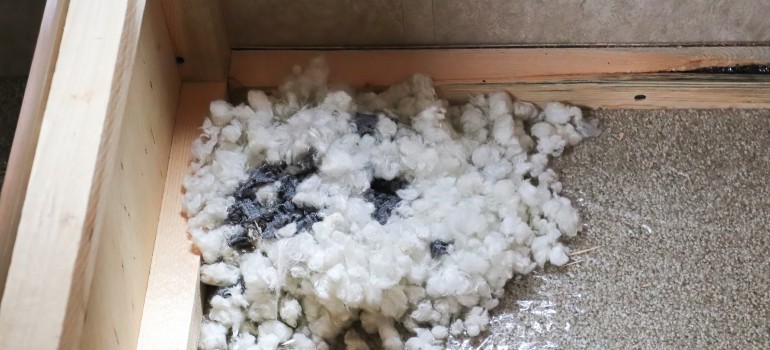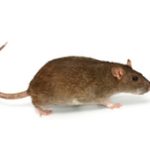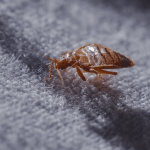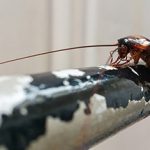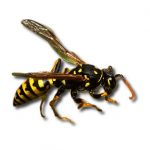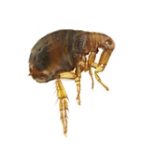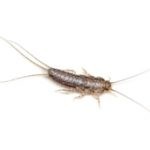What Smells Do Mice Hate
Unfortunately, mice are one of the most common pests you can encounter in the UK. They are definitely not a pleasure to deal with or easy to exterminate. It is not uncommon for a household to struggle with mice problems on multiple occasions.
Mice are especially nasty pests. They are very unhygienic, can spread diseases and cause damage to your property (chewing on furniture, walls, cables, pipes, etc.). Sealing holes around your house, keeping food properly and carefully stored, cleaning on a regular basis, as well as placing traps and poison, are the main things most of us do in an attempt to keep mice at bay or get rid of them. But did you know that there are also some specific smells that are believed to repel mice and deter them from infesting your home? This is actually a great natural method to use in your fight against these annoying little creatures.
Scents that repel mice naturally
Mice are highly sensitive to certain smells, making scent-based repellents an effective way to deter them. By using natural odours that mice dislike, you can keep your home rodent-free without resorting to harsh chemicals.
Ammonia
We will start with ammonia. This is a compound of nitrogen and hydrogen. It is mainly used as fertilizer in agriculture. Ammonia is also used for the purification of water and in the manufacturing of plastic, pesticides, explosives, dyes and other chemicals. According to many sources, the strong ammonia smell is a huge mouse repellent. A lot of research and tests on the topic, however, show that mice neither prefer nor dislike this particular scent. What is more, ammonia is very toxic and is considered a severe health hazard. If used as a compressed gas, ammonia can have a lot of dangerous side effects including eye irritation, inflamed airways, skin burn or even death. This is why you should use it with utmost care and attention.
Eucalyptus
This is a safer option to use. It is proven that the eucalyptus scent is a strong mice repellent. You can easily mix up a DIY eucalyptus oil spray using two teaspoons of eucalyptus oil, one cup of water and a couple of drops of liquid detergent. Spray the final results around your home and especially areas with a high chance of mice gaining entry – around drains, cracks and holes in walls, floorboards, skirting boards, etc. Repeat this process once every week for optimal results.
Chili Oil or Powder
Capsaicin is an active ingredient, contained in chili peppers, causing irritation when injected or inhaled. This is what makes chili oil or powder a very effective mice deterrent. Similarly to the eucalyptus spray, you can scatter some chili powder or pour a few drops of chili oil around possible entry points of mice. You can do the same with areas, where mice like to hide – e.g. behind furniture or in crawl spaces.
In need of professional pest control?
Qualified mouse exterminator will take care for your pest issues.
Lavender
Mice truly detest the lavender scent, so if you apply it properly, this might be a good way to scare them away and avoid infestations. What’s more – lavender generally helps lower anxiety and improve sleep, so there are some positive side effects for you. You need only two things – lavender essential oil and cotton balls. Carefully pour 8 to 10 drops of lavender oil on each cotton ball. Following that, place the cotton balls near possible entry points of mice. Leave them there until the scent is gone and repeat the process again if required.
Mint
A few important things to remember here. Make sure you use spearmint (mentha spicata). If you have a garden and have the time, you can plant and grow mint on your own. Leave small pots of mint around entry points, etc. If you prefer essential oils, you can use 100% pure peppermint oil. Similarly to the lavender essential oil, pour a few drops of the peppermint oil on cotton balls, scatter them around the property and leave them there until the scent is gone.
Vinegar
Vinegar is one of the most effective natural deterrents against mice due to its strong, pungent odour. The acetic acid in vinegar emits a smell that is overwhelming to a mouse’s sensitive olfactory system. Mice rely heavily on their sense of smell to navigate their surroundings, find food, and detect danger. The sharp, acidic scent of vinegar disrupts their ability to do so, making it an unwelcoming environment for them.
In addition to its strong smell, vinegar’s acidity can also interfere with the scent trails that mice leave behind to communicate with each other. By wiping surfaces, floors, and entry points with vinegar, homeowners can erase these pheromone trails, reducing the likelihood of a recurring infestation. White vinegar is particularly effective when used undiluted, though combining it with essential oils like peppermint can enhance its repellent properties.
Vinegar may not be effective in large, well-ventilated areas where its strong odour disperses too quickly to create a lasting impact. Additionally, if a home has a severe infestation, mice may tolerate the smell and continue to seek food and shelter. Vinegar is also ineffective in outdoor settings where rain or wind can quickly dilute or remove its scent. Furthermore, if mice have already established a strong nesting site with ample food sources, the deterrent effect of vinegar alone may not be enough to drive them away.
Garlic
Garlic is another natural substance that effectively repels mice due to its intense and persistent smell. The sulphur compounds found in garlic produce a strong odour that mice hate. When exposed to garlic, rodents are likely to avoid the area, as the pungent scent overwhelms their keen sense of smell and interferes with their natural behaviour.
Garlic’s repellent effect can be used in various ways to deter mice. Placing whole garlic cloves in entry points, behind furniture, and in areas where mice have been seen can help keep them at bay. Additionally, crushed garlic releases an even more potent aroma, making it an excellent option for creating a more powerful barrier. Mixing garlic with water and spraying it around problem areas is another effective method.
Garlic may not be effective in large, open spaces where its smell is not concentrated enough to deter mice. Additionally, if garlic is not replaced regularly, its scent diminishes, reducing its effectiveness over time.
Bay leaves
Bay leaves are a natural mouse deterrent due to their strong herbal scent, which rodents find unpleasant and overwhelming. The chemical compounds in bay leaves, such as eugenol, emit a fragrance that confuses and repels mice, making it difficult for them to locate food sources or establish nesting areas. Unlike other deterrents, bay leaves also contain mild toxic properties that can be harmful if ingested by mice, further discouraging them from staying in treated areas.
The smell of bay leaves may not be effective in high-airflow areas, as their scent disperses quickly. The potency of bay leaves diminishes over time if they are not replaced frequently. Moreover, some mice may ignore the deterrent if food sources are readily available. A bay leaf treatment alone won’t solve a severe mice infestation, and may need to be combined with other pest control strategies, such as traps and exclusions.
Professional Mice Control vs Natural Smells That Repel Mice
Certain strong-smelling substances can deter mice temporarily, but they do not eliminate infestations. These scents interfere with rodents’ sensitive olfactory senses, discouraging them from settling in treated areas. While natural smells may temporarily deter mice, they are unreliable and require constant reapplication. Mice quickly adapt to scents and may still find alternative nesting spots within the property.
Mice control services offer long-term, guaranteed solutions to infestations. For effective rodent control, our pest technicians use advanced techniques, specialised equipment, and industry-grade mouse control products.
The easiest and most effective way to get rid of mice is to hire the help of a professional pest control technician. Our teams handle all sorts of pest problems, including mice issues. The experts will thoroughly inspect the property, seal any possible entry points and set baits. If required, they can also return for follow-up visits to make sure the problem is eradicated once and for all.
Takeaways
Severe infestations mean mice have established nests, often hidden within walls, lofts, or under floorboards. Scent-based mice deterrents do not penetrate these areas, allowing rodents to continue breeding and multiplying despite their presence in the home.
Mice are highly resourceful and will prioritise food and shelter over mild discomfort from scents. If food and nesting materials are readily available, they are unlikely to leave just because of strong smells.
While natural mice repellents might deter a few individuals, they are ineffective against a severe infestation. Professional mice pest control is necessary to eliminate established colonies, seal entry points, and prevent further infestations.
Mice infestations are generally difficult to deal with. Sealing holes, setting traps and leaving poison are normally the methods we turn to. However, this may cause further issues – poison could be harmful to children and pets, sealing holes may lead to mice dying inside walls or under the floorboard, leaving an awful odour behind.
You can use certain scents (ammonia, eucalyptus, chili oil or powder, lavender, mint) to keep mice at bay but this definitely won’t work if mice are already inside your property.
Consider that we give information on possible ways for mice prevention. However, we cannot guarantee that all of the above approaches will work for you.



